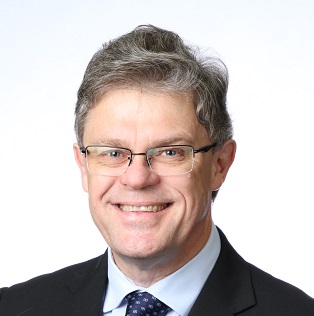Several oncologists and cancer researchers have been officially named among the field’s “best and brightest minds” after being made fellows of the Australian Academy of Health and Medical Sciences.
Professor Anna Nowak, a researcher and medical oncologist in Perth was recognised for her decades of work in malignant mesothelioma and neuro-oncology.
Pro Vice Chancellor (Health and Medical Research) at The University of Western Australia, Professor Nowak developed measurement criteria which are used in mesothelioma clinical trials worldwide.
She was also an early investigator of chemo-immunotherapy which had led to an international randomised clinical trial, the academy said.
As the Director at UWA’s National Centre for Asbestos Related Diseases, Professor Nowak leads and collaborates with around 35 scientific staff and graduate students and is also chair of the Australian CoOperative trials Group for Neuro-Oncology (COGNO).
Professor Nowak previously co-chaired the Brain Cancer Biobanking Australia for two years following its inception.
Also among the new fellows elected last week was Professor Michael Friedlander, conjoint Professor of Medicine at the University of NSW and a medical oncologist at the Prince of Wales Hospital and Royal Hospital for Women.
He has a broad range of research interests with a focus on clinical trials for women with breast and gynaecologic cancers
And Professor Ben Solomon was elected for his work identifying new treatments, changing standards of care and improving outcomes for patients with lung cancer.
A medical oncologist at Peter Mac, he is also a founder of the Thoracic Oncology Group of Australia (TOGA).

Professor Ian Davis. Source: ANZUP
Monash University Professor Ian Davis was recognised for more than three decades of work as a researcher and clinician, focussed particularly on the treatment of genitourinary cancers.
Among his achievements was as co-chair of the trial of enzalutamide for prostate cancer, which had led to regulatory approval in the US, Europe, Japan and Australia.
All up, 31 new fellows were elected to the academy last week, with other high-profile names including epidemiologist and Professor of Disability and Health at the University of Melbourne Professor Anne Kavanagh.
Doherty Institute laboratory head Professor Laura Mackay was also recognised for her work on tissue-resident memory T cells and their involvement in viral and tumour immunity.
At 39, she was the academy’s youngest-ever fellow to be elected, said AAHMS President, Professor Ingrid Scheffer.
“The wealth of experience and diversity of expertise amongst our newest fellows will allow the academy to continue to provide an expert and authoritative voice that spans the full breadth and depth of health services, medical science, research and innovation in Australia,” Professor Scheffer said.
“Our fellows include the nation’s top health and research leaders and I look forward to seeing the contributions that our 2022 fellows make to ensure that Australia continues to have a robust and world-leading health and medical research and innovation sector.”
Other new fellows include:
- ABC journalist and doctor Dr Norman Swan, elected in recognition of his significant contribution to health and medical science journalism over the past four decades.
- Professor Di Yu, the inaugural director and chair in paediatric immunotherapy at the Ian Frazer Centre for Children’s Immunotherapy Research at the University of Queensland.
- Professor Ian Freckelton, King’s Counsel, elected in recognition of his extensive contributions to health law and policy, including as founder of the Journal of Law and Medicine and publishing through a series of edited books on health law.
- Professor Jennifer Couper, Head of Paediatrics at The University of Adelaide, who is a practicing clinician and researcher who leads innovations for children at-risk of or with type 1 diabetes.
- Professor Leonid Churilov, Professor in Biostatistics at The University of Melbourne, who led complex and comprehensive design and analysis of acute and recovery stroke trials that have resulted in global changes in clinical practice.